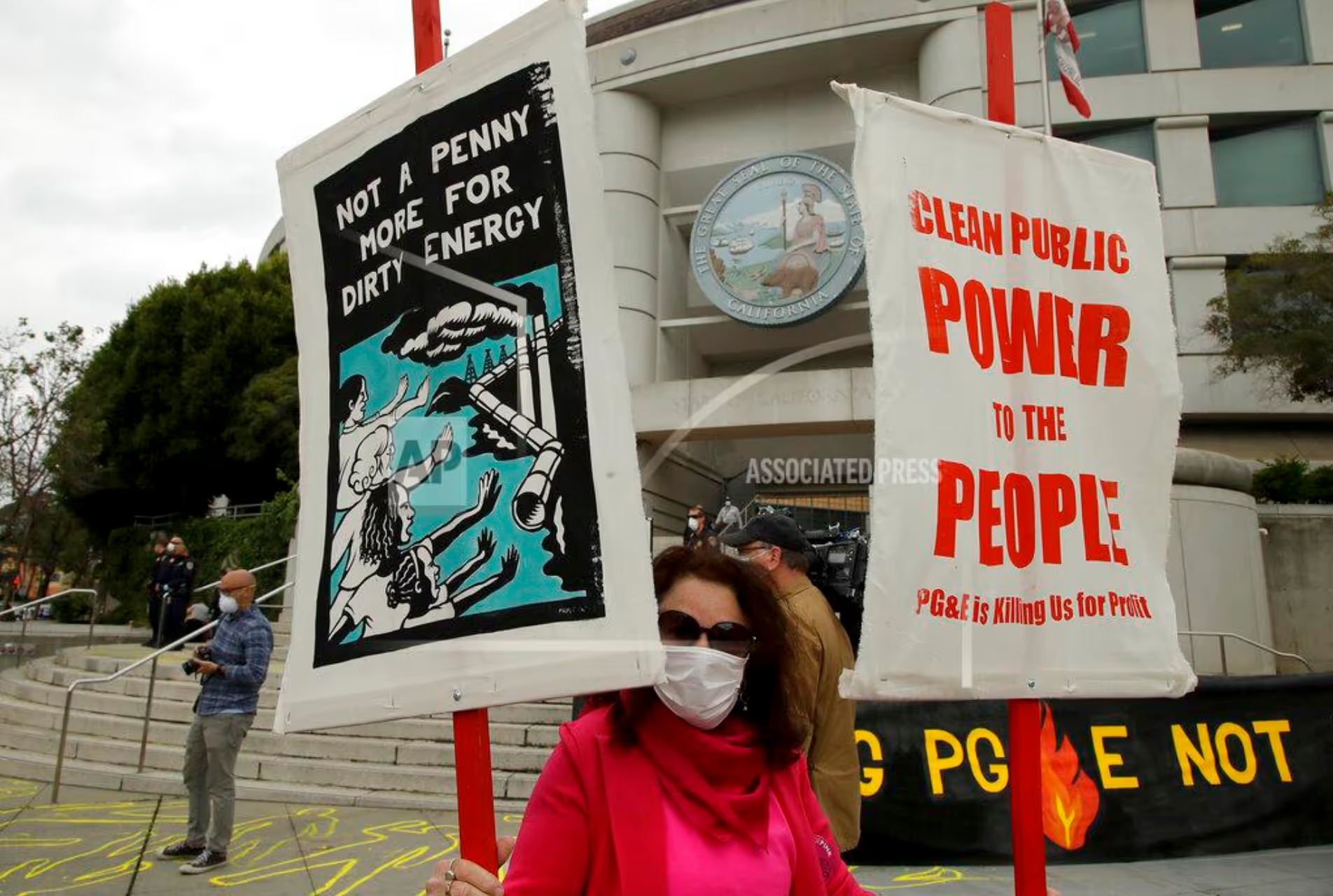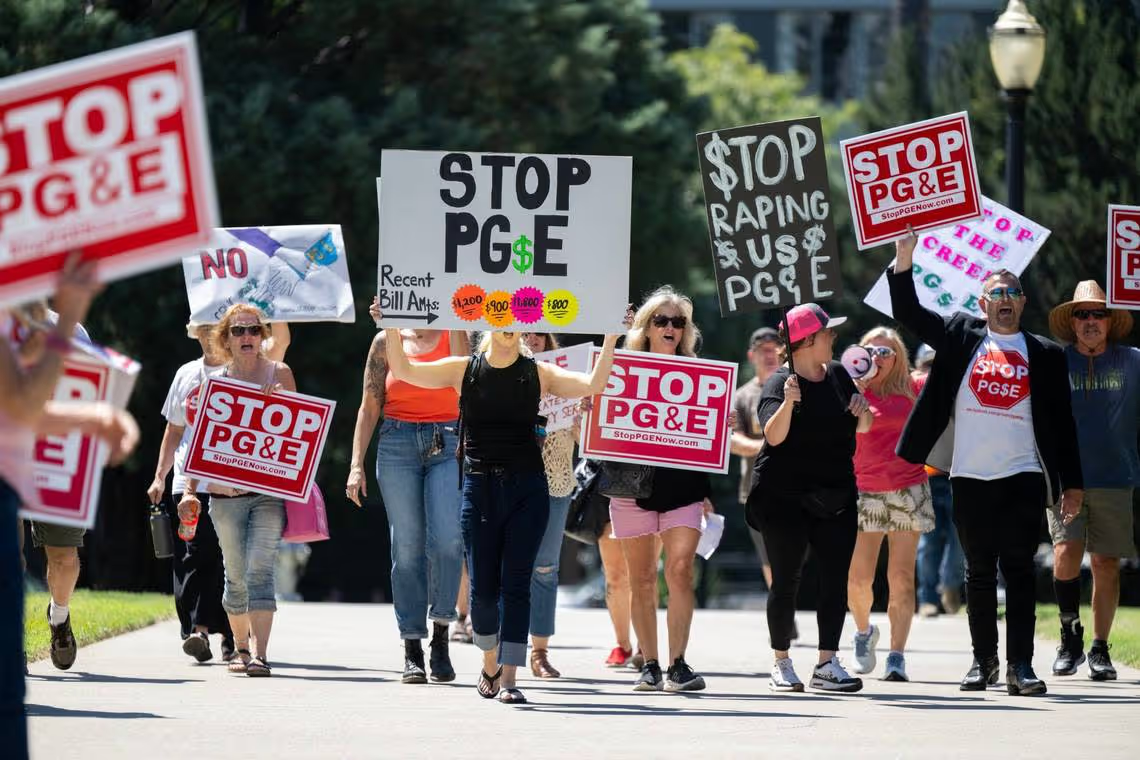Former CPUC Head Explains How “Cozy Capitalism” Has Led to Record High Electricity Costs in California

When she was growing up, Loretta Lynch's dad had a favorite phrase when the colder winter months hit - "Put on a sweater, don't touch that dial."
Her father knew that cranking up the thermostat would mean a bigger electric bill, and that wasn't something the working class family could afford. "My parents were not college graduates, and we lived in a big rickety house.... he knew, and I knew from when I was little, we could not afford a big electric bill in the winter," says Lynch. "And I know that there are millions of California families who are just like mine was."
Today, more then one in four California households are struggling to pay their electricity bills.
As a former president of the California Public Utility: Commission, or CPUC, Lynch has firsthand insight into the watchdog role the panel should play in protecting people from astronomical bills. But what she's seen with the five-member panel picked by Gov. Gavin Newsom is the opposite; a rubber stamp for boosting the utilities' profits.
The same goes for Newsom's pick for the public advocate, the entity within the commission that is supposed to act on behalf of customers.
Pacific Gas & Electric Company, Southern California Edison Company and San Diego Gas & Electric Company have found a warm reception at the commission. They effectively get the green light for electricity and gas plans that pursue the most expensive options, rather than cutting rates and lowering the eye-watering bills that have become part of daily life for millions of Californians. State residents pay the second-highest electricity bills in the U.S., behind only Hawaii.
"It's so expensive because there's a crony capitalism between the regulator and the regulated," says Lynch.
%20(1).avif)
'Laughing all the way to the bank'
Lynch's experience of growing up in a family that had to make the choice between paying the electricity bill or paying for other necessities is what's driving her call for the CPUC to find a spine and stand up to the power companies.
In California, utility bills have doubled in just the last decade.
“Because you can talk about it in a very abstract way – excess costs, too-high estimates, too-high profits – but it what really means is: You pay the electric bill or you eat meat, you pay the electric bill or you buy shoes for your kid going back to school, you pay the electric bill or you pay the rent. And I know viscerally what those choices feel like,” she says.
“I don’t think any California family should have to go through those choices, especially when the utilities are profiteering and laughing all the way to the bank,” she adds.
From 2000 to 2002 when she led the CPUC, Lynch was an early and vocal critic of energy deregulation and a strong champion for protecting ratepayers and ending utility corruption. So she's alarmed at just how far in the opposite direction the commission has gone.
The monopoly utilities made $12.9 billion in profits in 2023 and 2024.
The CPUC is "literally pushing your money out the door to the utilities, and that's why our prices are going up. Because the utilitles are picking the most expensive way to do things, they're doing things they don't need to do and their profits are extraordinary." she says.
PG&E and the state's two other investor-owned utility monopolies routinely overspend on grid modernization, inflating costs for projects like transition lines and undergrounding power lines that often aren't needed or aren't executed in the most efficient, cost-saving ways. These inflated investments are not about improving the grid but about maximizing profits for executives and shareholders, all at the expense of ratepayers who end up footing the bill for unnecessary, wasteful projects that result in one rate increase after another.
In 2024, the CPUC approved an astonishing six rate hikes for PG&E alone.
'Just say no'
That's why Lynch is supporting the Re-Volt.org campaign to end utility corruption of the CPUC and empower Californians to stand up to force the commissioners back on the side of ratepayers. Community action can bring about change that finally lowers energy bills.
Through her childhood experience, Lynch knows what it's like when families have to make tough choices between eating or staying warm. And through her past work, she knows that the commission could be a powerful ally for reining in utility excesses.
But that's not what's happening, and bills keep rising.
"I don't know about you but I can't stand it anymore," says Lynch. "That's why we need government regulators who are watchdogs and not lapdogs."
She's urging Californians to unite through the Re-Volt.org campaign and put pressure on the governor to urgently and decisively tackle the problem. "So if you're ticked off about your electric or gas bill, call the governor's office and tell him to hold the CPUC to account, make the CPUC audit the utilities before they give them one penny more.
*Tell the governor: Just stop it, just say no to the utilities' outrageous requests for more and more increases. Just say no."



.svg)

